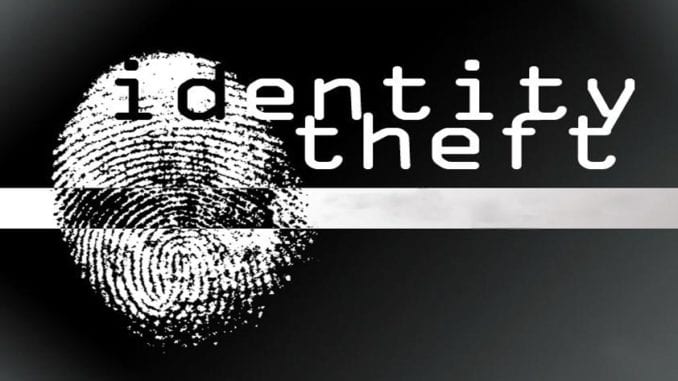
-
Phishing
This popular scam involves getting information about people by sending spam emails. Links in those emails will take you to pages where the thieves will ask you to enter your bank account login and password or other sensitive information, sometimes under the threat of investigation or suspension of services. It’s good to follow the general rule of never giving personal information over email and to contact your bank directly.
Phishing can also now happen over social media messaging. These accounts will pretend that you’re social media account is in trouble or going to get shut down if you don’t give them a bunch of information. They may also pretend that you’ve won a huge giveaway and say that you need to provide a ton of information to claim your prize. Never give out your CC or SSN numbers to anyone over email or messaging apps.
-
Bank Examiner Scams
This is more of an old-school tactic, in which someone approaches you and tells you that they are investigating the bank and need you to withdraw money in order to give them proof of corruption at the financial institution. However, you should always remember that these types of investigations never require public cooperation, and you should contact the police if someone tries to convince you they’re doing it.
-
Doctored ATMs
Some thieves covertly install their own equipment on ATMs. The equipment allows them to intercept ATM card and PIN information. Sometimes this involves the use of cameras hidden in a deposit envelope holder. Be careful if the ATM has out-of-the-ordinary cracks around the card slot or if the ATM asks for your PIN several times.
These types of devices have also been known to be found on gas station pumps.
-
Phone Fraud
Phone fraud is on the rise, and now there are many different types of phone fraud scams around. Many ask about extended warranties or claims the IRS or police are looking for you.
Some fraudsters will call to inform you that they are investigating questionable charges on your credit card. Once they give you a charge you don’t remember, they’ll ask for your credit card information to supposedly continue the process. However, credit card companies shouldn’t ask you for this information, so the best strategy is to hang up and call your credit card company directly to make sure it is a legitimate concern.
In general, if you get a call that tells you something serious is happening, do not give any information away initially. Hang up, then look up the institute online that was said to be contacting you, find their number, and call that number back. Ask them if the phone call you received was legitimate or not.
-
Call Forwarding Scam
A variation of the classic phone fraud scam occurs when a scammer poses as a telephone company employee who gets your credit card information and informs you to leave the phone off the hook in order to verify and fix a supposed issue with your telephone service. This allows the thief to forward verification calls concerning wire transfers without you knowing about it. Of course, not giving out credit card information over the phone prevents any of this from happening as well.
-
Card Verification Scam
This strategy involves a person calling or emailing to ask for credit card information necessary to verify information lost in a recent hack or server failure, with the threat of a cancellation of your account. Once again, refusal to give the information is the best policy. Hang up, find the company’s true phone number, and confirm that something is wrong whenever you are in doubt.
Also, if they’re trying to talk techy to you, and you aren’t understanding what they’re saying, try to find someone who does understand that field. Odds are, what the person on the phone is saying isn’t actually legitimate.
-
Lottery Scam
This is one of the more common tricks out there because of how effective it’s actually been over the years due to its appeal to human greed. Usually, it’s an email from an overseas lottery that you didn’t enter informing you of a substantial amount of money available as long as you provide bank account information so they can wire transfer your winnings.
-
Fake Charities
While some real charities solicit donations over the phone, it’s best to avoid the potential for identity theft by donating directly to the charity in person or online through legitimate websites.
-
Fake Invoices
A common mail scam involves sending invoices for products you never ordered. Make sure that there is an alternative contact method, usually a phone number. Of course, if you are certain you never ordered the product, you’ll be safe just ignoring it.
-
Fake Brokerage Companies
Some scammers may opt for sending spam emails advertising hot tips and good stock options, and get you to provide personal information to sign up for their services. However, you are much better off going to a legitimate brokerage firm in person than using an unsolicited email to get you into the stock market.
Bonus Tips:
In addition to never giving out your CC information or SSN number via email, phone call, or message there are a couple of other things you can do to protect yourself as well.
- Never provide anyone with a bunch of money in gift cards. It doesn’t matter what sob story or reason they give you for only being able to take gift cards, don’t believe them. There is no refund for gift cards, even if you are scammed.
- Don’t pay strangers as “friends or family.” Most of the money transferring apps, like PayPal and Venmo, have a friends or family option and a business option. If you do not know the person who you are dealing with you should always pay as a business transaction. Sometimes the person will try to talk you out of this option, claiming that they want to avoid fees or other excuses, but this option is there to protect you. If you pay them as friends and family you lose the ability to dispute the charge or get your money back if you realize you’re being scammed. If you pay as a business then you have the option to dispute charges if the person or business does not fulfil their end of the bargain.
- Don’t give in to high-pressure tactics. Often, these scams work because the scammers tell you that an immediate threat is happening and that if you don’t give them all of this information right now, the IRS is going to arrest you or you’re going to lose all your data or you won’t be able to collect the million dollar prize you don’t even remember entering. They use these high-pressure tactics so that you don’t have time to think things through, look up if it’s a legitimate company or a scam, or even ask your friends or family if they think this is a real thing.
- Don’t trust fear tactics either. As mentioned above, high-pressure tactics tend to go hand-in-hand with fear tactics. In general, in this day and age, there is nothing that will happen to you that is happening so quickly that you’re not allowed to take a few minutes to collect yourself and contact your own sources. Unless the police are already on your doorstep, then you have time to see if there even is “a warrant out for your arrest.” Hang up, call your police station—or bank, or whatever agency is said to be threatening you—and ask them to confirm that you’re actually in trouble.
- Don’t trust people offering to pay you significantly more than you’re asking for with the promise of shipping the item to you or having you ship the item to them. If someone is paying you, and they appear to have already given you some money, you might think that you’re safe from being scammed. However, there are many scammers out there who are able to fake a check or make it appear that you’ve been paid, but then never carry through on your end. The checks bounce or the money disappears and there’s nothing that can be done. In general, if someone is being too nice or paying lots of money extra for a not-all-that-special item or pet, they’re probably trying to scam you. People aren’t usually that nice, especially towards strangers.
- ALWAYS triple verify large money transfers happening online. Better yet, do all large money transfers in person. Scammers are really smart. Some of them are even able to identify people who are in the process of making really big purchases, like buying a house, and target them in order to attempt to hijack your entire house down payment. If they succeed you could be out your entire downpayment, with very little hope of getting it back. This would be a devastating setback for almost anyone.
One of the ways they do this is by hacking your email and monitoring the emails you’re getting. When they see that it’s time for you to send a wire transfer, they delete the real email and send their own. Since you’re already expecting to receive a request like this, odds are you won’t really question the email, and as long as it looks vaguely legitimate you’ll send the money through. So, a good rule of thumb is to make sure your email account is very protected so that it’s hard to hack and to make large wire transfers in person whenever possible so that you know the money is going where it’s supposed to be.
Have you or a loved one fallen or almost fallen for a scam? Share with us below so that other people won’t fall for the same one.



